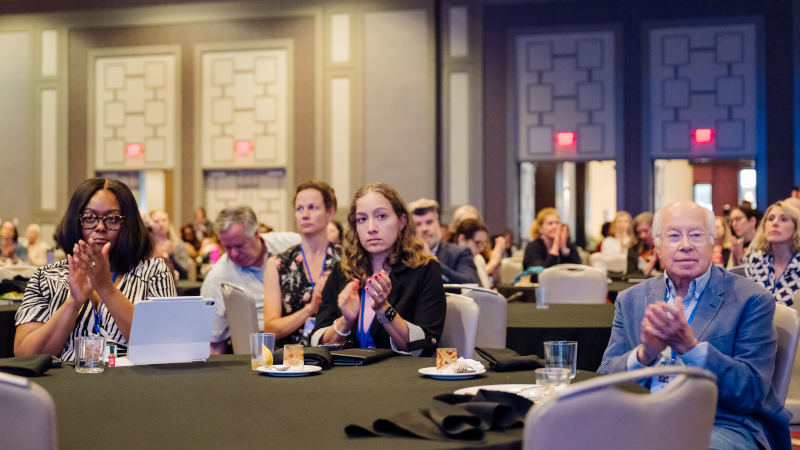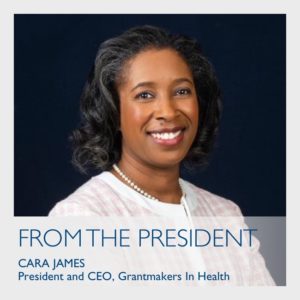Courageous Action for the Health of Our Communities
The final day of the 2025 Annual Conference on Health Philanthropy focused on milestone moments in health like the 20th anniversary of Hurricane Katrina and elevated the philanthropic partnerships already inspiring a better tomorrow. While much of the conference was spent reflecting, today was marked by action and what comes next: standing firm in values, being courageous, and co-creating a vision for the future.
Reimagining Health Philanthropy, Together
During Day 2 of the 2025 Annual Conference on Health Philanthropy, attendees across sectors worked together to identify the intersections of their work and co-created solutions for healthier, thriving communities. Sessions spanned a wide range of topics, from exploring business’ role in health equity to strategies for supporting staff in uncertain times.
We’re Moving!
The GIH office has relocate to a new suite (in the same building) as of October 22, 2020. Please note the following address in your system to ensure that we continue to hear from you: 1100 Connecticut Avenue NW, Suite 1100
Supporting Emerging Leaders Amid a Pandemic
This year has placed a spotlight on many things, including the importance of leadership during times of crisis and uncertainty. I recently had the pleasure of welcoming the newest cohort of fellows to the Terrance Keenan Institute for Emerging Leaders in Health Philanthropy. We spent three afternoons together learning about each other’s leadership style, talking about how to foster more diverse and inclusive work environments, discussing how to advance health equity through the work of their foundations, and engaging community leaders in a discussion on power sharing and how to more effectively partner with community organizations to effect change.
Defeating the Deadly Double: Depression and Diabetes
Inadequate access to mental health services, diabetes, and obesity are the top-ranked critical service gaps in virtually all community health needs assessments conducted by local health departments and nonprofit hospitals throughout Virginia. Diabetes and depression are also among the top three conditions treated in Virginia’s health safety net organizations.
Responding to COVID-19 and Beyond
In the early days of the COVID-19 pandemic, the Trust was compelled to do our part. Like most philanthropic organizations, we were determined to maximize impact and make grants quickly, while also adhering to our due diligence standards.
Innovation in the Safety Net
This country’s safety net health system has always been a place of innovation. The safety net includes community health centers and public hospitals that serve the 100 million patients who either have Medicaid or lack health insurance entirely. With limited resources and patients with complex medical, social, and behavioral health needs, the safety net has long had to innovate out of necessity.








